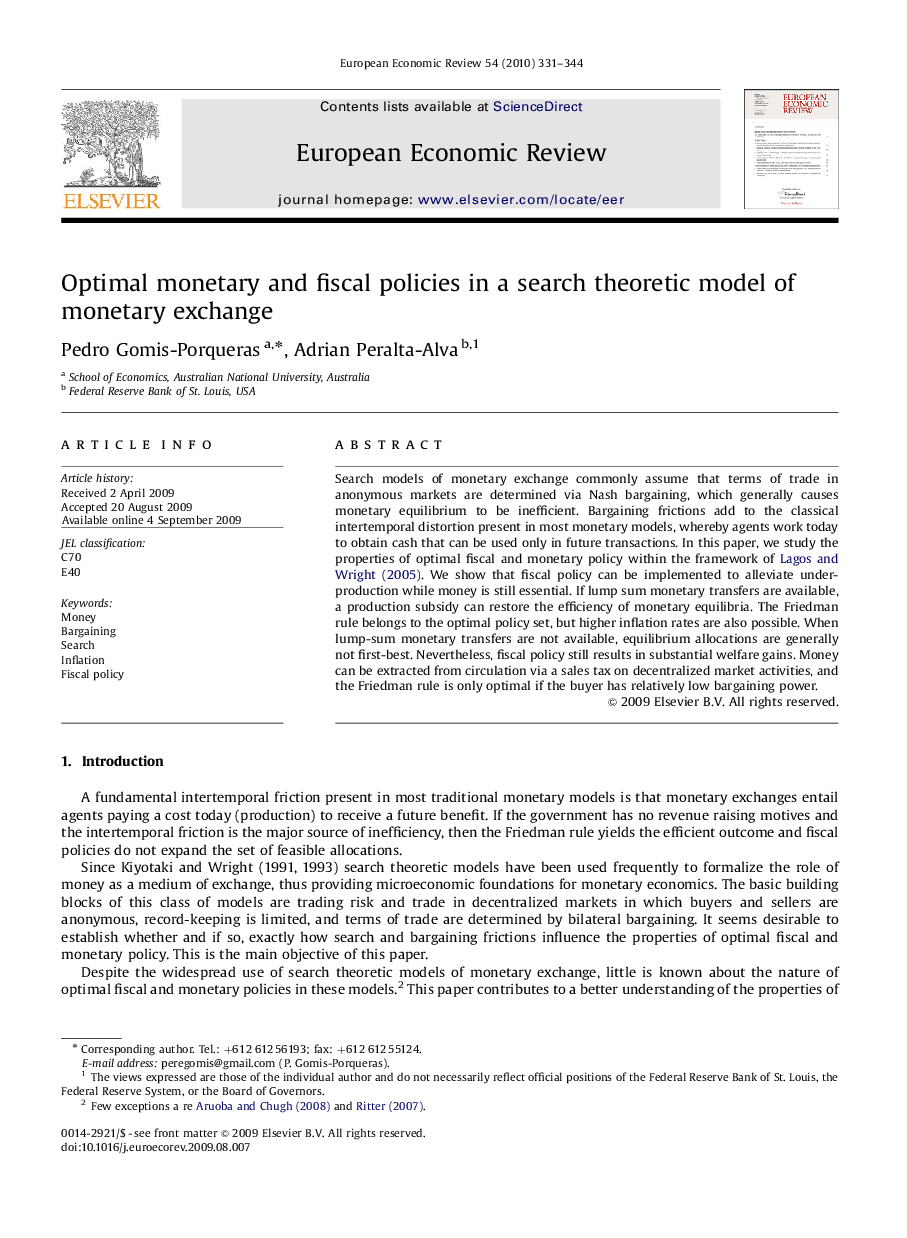| Article ID | Journal | Published Year | Pages | File Type |
|---|---|---|---|---|
| 5067239 | European Economic Review | 2010 | 14 Pages |
Abstract
Search models of monetary exchange commonly assume that terms of trade in anonymous markets are determined via Nash bargaining, which generally causes monetary equilibrium to be inefficient. Bargaining frictions add to the classical intertemporal distortion present in most monetary models, whereby agents work today to obtain cash that can be used only in future transactions. In this paper, we study the properties of optimal fiscal and monetary policy within the framework of Lagos and Wright (2005). We show that fiscal policy can be implemented to alleviate underproduction while money is still essential. If lump sum monetary transfers are available, a production subsidy can restore the efficiency of monetary equilibria. The Friedman rule belongs to the optimal policy set, but higher inflation rates are also possible. When lump-sum monetary transfers are not available, equilibrium allocations are generally not first-best. Nevertheless, fiscal policy still results in substantial welfare gains. Money can be extracted from circulation via a sales tax on decentralized market activities, and the Friedman rule is only optimal if the buyer has relatively low bargaining power.
Related Topics
Social Sciences and Humanities
Economics, Econometrics and Finance
Economics and Econometrics
Authors
Pedro Gomis-Porqueras, Adrian Peralta-Alva,
